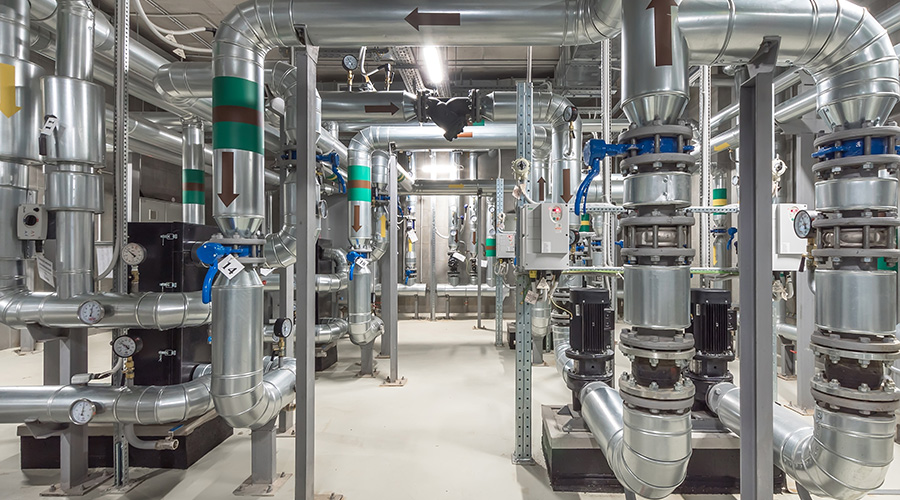Why HVAC Projects Go Well — or Poorly
HVAC projects in existing buildings can go well — or poorly. Among the positive strategies are using "mock-ups," as well as good communication and teamwork. The issues that can make a project go poorly include unplanned disruptions and a project falling behind schedule. Here's a closer look at the good and bad.
9. Use "mock-ups" and bench testing wherever possible. When an installation involves typical fixtures that are to be replicated throughout the facility (such as terminal units being upgraded, or new controllers for all air handlers), it is advisable to complete one unit start-to-finish before moving on to the rest. This allows the team to work through issues in a manner that can be replicated at the outset for the remaining installations. Similarly, bench testing commonly occurs in controls projects, where a new controls program can be put through its paces in a simulated environment prior to being loaded into a new air handler or chiller controller. This is extremely helpful for avoiding unexpected issues that would otherwise occur immediately after cutover.
The theme that runs through these tips is that timely and consistent communication is the most beneficial means of avoiding issues in HVAC projects in existing buildings. Most issues can be avoided by having the facility manager and contractor work as a team at the beginning of a project to address potential issues, and ensure everyone's expectations are consistent and all requirements will be met.
Robert Austin is assistant business manager, energy solutions, for Dewberry. He can be reached at raustin@dewberry.com.
When HVAC Projects Fail to Deliver
When HVAC projects involve major renovation and construction, the jobs can actually be more manageable. This is because key stakeholders generally have an appreciation for how extensive an undertaking the project can be, and can plan accordingly. The most challenging HVAC projects tend to be the small to mid-size projects that may not receive the same attention to detail. Common issues that occur in HVAC projects include:
Occupants Are Adversely Impacted By Unplanned Disruptions. The health and productivity of the occupants who work in the building are among the most important metrics for most facility managers. The most sensitive issue in any HVAC project in an existing facility is "how will the project affect occupants?"
Disruptions can take many forms:
- A tenant becomes irate because the air conditioning went down during an important customer presentation.
- A school is evacuated due to a "chemical smell" coming from the air conditioning vents.
- A fire alarm is inadvertently tripped, leading to an evacuation of a college classroom building during finals week.
These represent nightmare scenarios for facility operators that are caused by poor planning and communication.
Project Fails To Meet The Schedule. There are many reasons why HVAC projects fall behind schedule, but the most commonly recurring issues include:
- Site access constraints and occupant interruptions were not properly built into the schedule. Most contractors build their schedule assuming free, uninterrupted access throughout the facility. As this is often impractical in existing facilities, additional time should be built in to account for these delays.
- Job logistics and space constraints turn out to be much more onerous than anticipated. A contractor may have planned a schedule assuming multiple work crews accomplishing many tasks simultaneously. But once the project begins, it becomes apparent that the site can't support that many crews without compromising and disrupting facility operations.
- Lack of coordination between various trades completing the work. Most HVAC projects involve three contractors: mechanical, electrical, and controls. Facility managers will often opt to hire each contractor directly and act as the overall project manager without hiring a single prime or general contractor. This is usually to save cost in overhead and markups. The disadvantage becomes apparent when the facility manager doesn't have time to manage all aspects of the project every day, resulting in lapses in communication with the construction team that adversely impact the schedule.
|
Related Topics:














